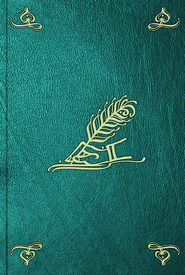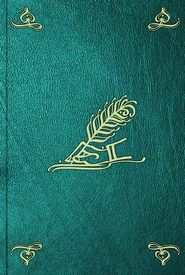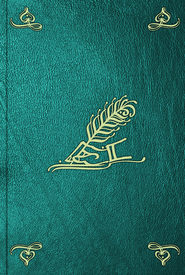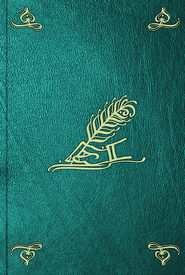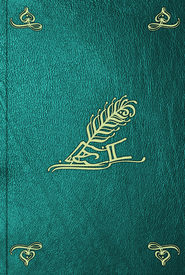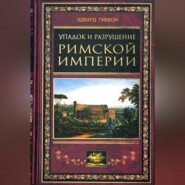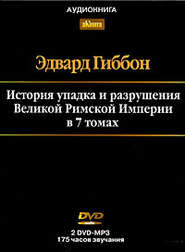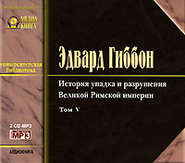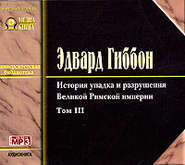По всем вопросам обращайтесь на: info@litportal.ru
(©) 2003-2025.
✖
Private Letters of Edward Gibbon (1753-1794) Volume 1 (of 2)
Настройки чтения
Размер шрифта
Высота строк
Поля
The Soho masquerades were given at Carlisle House by Mrs. Theresa Cornelys, whom Walpole calls "the Heidegger of the age." It was here that, the year before, the Duke of Gloucester appeared as Edward IV. with Lady Waldegrave as Elizabeth Woodville.
Footnote_140_140
Sir John Dalrymple published in 1771 the two first volumes of his Memoirs of Great Britain and Ireland. His style was parodied by Dr. Johnson, who said, "Nothing can be poorer than his mode of writing; it is the mere bouncing of a schoolboy!"
Footnote_141_141
Mr. Holroyd owned property in Ireland, and at Greave Hall, near Ferrybridge, in Yorkshire.
Footnote_142_142
William Robertson (1721-1793) published in 1758 his History of Scotland during the Reigns of Queen Mary and James VI., and in 1769 his History of the Reign of the Emperor Charles the Fifth.
Footnote_143_143
Lieutenant-Colonel Nugent, of the 1st Foot Guards, son to Viscount Clare, and groom of the bedchamber to the king, died at Bath, April 26, 1771. The Eliots were connected with Lord Clare through the Craggs family.
Footnote_144_144
The Hon. John Damer, eldest son of Lord Milton, afterwards created Earl of Dorchester. His mother was Lady Caroline Sackville, daughter of the first Duke of Dorset, and sister of the then existing Duke; married, in 1742, to Joseph Damer, Lord Milton.
Footnote_145_145
Denham, Bucks, built in 1667 by Sir Roger Hill, came to Lewis Way through his marriage with Abigail Locke, Sir Roger's granddaughter. Lewis Way, who died January 24, 1771, left by his first wife one son, Benjamin, who succeeded to Denham, and one daughter, Abigail, wife of J. B. Holroyd. By his second wife he left another son, Gregory Lewis Way, the translator of Fabliaux; or, Tales abridged from French Manuscripts of the Twelfth and Thirteenth Centuries (edited by George Ellis, and published in two volumes in 1796-1800), who is more than once mentioned in these letters. Denham Place was the "pastoral retreat" of Sir Humphrey Davy.
Footnote_146_146
Lord Henley, M.P. for the county of Southampton, succeeded his father as second and last Earl of Northington in January, 1772. At the election to fill this vacancy Sir Henry Paulet St. John was elected.
Footnote_147_147
Caroline Matilda, posthumous child of Frederick, Prince of Wales, was born in July, 1751. She married in October, 1766, Christian VII., King of Denmark. Before her departure from England, her portrait was painted by Sir Joshua Reynolds, who complained that she was so constantly in tears that he could do justice neither to her nor to himself. The marriage proved unhappy. Her husband appears to have been a low brute, whose excesses impaired whatever mind he originally possessed. The queen, on her side, was guilty, at the least, of imprudences which were used against her by her enemies. During his travels, the king had made a favourite of a young physician named Struensee, who practically became Prime Minister, and, with his friend Brandt, governed Denmark. The Queen Dowager, Juliana Maria, stepmother of the king, placed herself, with her son Frederick, at the head of the malcontents. In January, 1772, Struensee and Brandt were arrested, and, after a protracted inquiry, executed in the following April. The queen was imprisoned at the Castle of Cronenbourg. From this prison she was released by the intervention of her brother, George III., and passed the few remaining years of her life at Zell, in Hanover, where her great-grandmother, Sophia Dorothea, had died in captivity. There she died in 1775, at the age of twenty-four.
Footnote_148_148
The Princess Dowager (1719-1772), youngest daughter of Frederick II., Duke of Saxe Gotha, widow of Frederick, Prince of Wales, mother of George III. and the Queen Caroline of Denmark, died at Carlton House on February 8, 1772.
Footnote_149_149
Either Joseph Cradock's adaptation of Voltaire's play Les Scythes, acted at Covent Garden under the title of Zobeïde, with a prologue by Goldsmith, or Cumberland's Fashionable Lover, as acted at Drury Lane. Both plays were published early in 1772.
Footnote_150_150
The History of the Famous Preacher, Friar Gerund de Campazas, otherwise Gerund Zotes. London, 1772. 2 vols., 8vo.
Footnote_151_151
George Wilbraham, of Delamere Lodge, Cheshire.
Footnote_152_152
Godfrey Bagnal Clarke, M.P. for Derbyshire, who had made the tour of Italy at the same time as Gibbon.
Footnote_153_153
The name by which Mr. Holroyd's son called himself.
Footnote_154_154
Colonel Isaac Barré (1726-1802), succeeded Lord Fitzmaurice as M.P. for Chipping Wycombe in 1761. He afterwards sat for Calne. He had served under Wolfe at Quebec, and appears in West's famous picture of the death of Wolfe. At the battle he lost his left eye, and in his picture by Sir Joshua Reynolds the right side of his face is turned towards the spectator. He was a prominent opponent of Lord North, and held office under the first Pitt, and subsequently in the Rockingham and Shelburne administrations.
Footnote_155_155
The Duke of Cumberland married, in October, 1771, Mrs. Horton, a daughter of Simon Luttrell, Lord Irnham (afterwards Earl of Carhampton), "a young widow of twenty-four, with the most amorous eyes in the world, and eyelashes a yard long." The Duke of Gloucester, a few months later, avowed his clandestine marriage with Maria, an illegitimate daughter of Sir Edward Walpole, and widow of the second Earl of Waldegrave. The Royal Marriage Bill was brought in, in consequence of these marriages, on February 20, 1772, and became law in the following March.
Footnote_156_156
Colonel Luttrell (1743-1821), brother of the Duchess of Cumberland, had been declared by the House to be elected for Middlesex against Wilkes in April, 1769, although the latter polled 1143 votes to Colonel Luttrell's 296. He was made adjutant-general of the land forces in Ireland; but in 1772, being discontented with the post, threatened to resign his seat for Middlesex, and so renew the struggle with Wilkes. The circumstances in which the appointment was made are noticed by Junius (August 22, 1770).
Footnote_157_157
Walpole, writing in May, 1770, speaks of "a winter-Ranelagh erecting in Oxford Road at the expense of sixty thousand pounds." "Imagine Balbec in all its glory!" he writes, when it was approaching completion in April, 1771. The Pantheon, built by Wyatt, was opened on January 27, 1772, "to a crowded company of between fifteen hundred and two thousand people. In point of consequence, the company were an olio of all sorts; peers, peeresses, honourables, and right honourables, jew brokers, demireps, lottery insurers, and quack doctors" (Annual Register). It was destroyed by fire on January 16, 1792.
Gentlemen and ladies could only subscribe to the Pantheon on the recommendation of a peeress, in order to prevent, as the proprietors announce in the Gazetteer (December 17, 1771), "such persons only from obtaining subscriptions whose appearance might not only be improper but subversive of that elegance and propriety which they wish on every occasion to preserve." On the other hand, once admitted to be subscribers, they could introduce friends of any or no character. The struggle between the two factions was decided by the efforts of a number of gentlemen, headed by Mr. William Hanger, who, with drawn swords, succeeded in forcing an entrance for Mrs. Baddeley. Possibly Gibbon meant, instead of repeating "Gentlemen Proprietors," to mark the contrast by writing "Gentlemen Subscribers" in the second sentence. The dispute is alluded to in a poem published in 1772, called The Pantheon Rupture; or, A Dispute between Elegance and Reason. In their dialogue Elegance says —
And hate the very name of a divorce;
Besides the Managers admit none in,
That e'er were known to have committed sin; —
The needy dame, who makes of love a trade,
These Realms of Virtue must not dare invade;
The company's selected from a class
Too chaste to suffer demireps to pass.
Reason
But, Elegance, before more time you waste,
Inform me, pray, are all those Ladies chaste?
Elegance
Chaste! surely yes. – The Managers admit
None but chaste Ladies, in their virtuous set;
Besides, if any one a slip hath made,
A Title hides it with oblivion's shade."
Footnote_158_158
Parliament met January 21, 1772. On February 6, Sir W. Meredith presented a petition from the "Feathers Tavern Association," signed by two hundred and fifty clergymen, lawyers, and physicians, praying that their professions might be relieved from the necessity of subscription to the XXXIX. Articles. The House decided, by 217 to 71, not to receive the petition.
Footnote_140_140
Sir John Dalrymple published in 1771 the two first volumes of his Memoirs of Great Britain and Ireland. His style was parodied by Dr. Johnson, who said, "Nothing can be poorer than his mode of writing; it is the mere bouncing of a schoolboy!"
Footnote_141_141
Mr. Holroyd owned property in Ireland, and at Greave Hall, near Ferrybridge, in Yorkshire.
Footnote_142_142
William Robertson (1721-1793) published in 1758 his History of Scotland during the Reigns of Queen Mary and James VI., and in 1769 his History of the Reign of the Emperor Charles the Fifth.
Footnote_143_143
Lieutenant-Colonel Nugent, of the 1st Foot Guards, son to Viscount Clare, and groom of the bedchamber to the king, died at Bath, April 26, 1771. The Eliots were connected with Lord Clare through the Craggs family.
Footnote_144_144
The Hon. John Damer, eldest son of Lord Milton, afterwards created Earl of Dorchester. His mother was Lady Caroline Sackville, daughter of the first Duke of Dorset, and sister of the then existing Duke; married, in 1742, to Joseph Damer, Lord Milton.
Footnote_145_145
Denham, Bucks, built in 1667 by Sir Roger Hill, came to Lewis Way through his marriage with Abigail Locke, Sir Roger's granddaughter. Lewis Way, who died January 24, 1771, left by his first wife one son, Benjamin, who succeeded to Denham, and one daughter, Abigail, wife of J. B. Holroyd. By his second wife he left another son, Gregory Lewis Way, the translator of Fabliaux; or, Tales abridged from French Manuscripts of the Twelfth and Thirteenth Centuries (edited by George Ellis, and published in two volumes in 1796-1800), who is more than once mentioned in these letters. Denham Place was the "pastoral retreat" of Sir Humphrey Davy.
Footnote_146_146
Lord Henley, M.P. for the county of Southampton, succeeded his father as second and last Earl of Northington in January, 1772. At the election to fill this vacancy Sir Henry Paulet St. John was elected.
Footnote_147_147
Caroline Matilda, posthumous child of Frederick, Prince of Wales, was born in July, 1751. She married in October, 1766, Christian VII., King of Denmark. Before her departure from England, her portrait was painted by Sir Joshua Reynolds, who complained that she was so constantly in tears that he could do justice neither to her nor to himself. The marriage proved unhappy. Her husband appears to have been a low brute, whose excesses impaired whatever mind he originally possessed. The queen, on her side, was guilty, at the least, of imprudences which were used against her by her enemies. During his travels, the king had made a favourite of a young physician named Struensee, who practically became Prime Minister, and, with his friend Brandt, governed Denmark. The Queen Dowager, Juliana Maria, stepmother of the king, placed herself, with her son Frederick, at the head of the malcontents. In January, 1772, Struensee and Brandt were arrested, and, after a protracted inquiry, executed in the following April. The queen was imprisoned at the Castle of Cronenbourg. From this prison she was released by the intervention of her brother, George III., and passed the few remaining years of her life at Zell, in Hanover, where her great-grandmother, Sophia Dorothea, had died in captivity. There she died in 1775, at the age of twenty-four.
Footnote_148_148
The Princess Dowager (1719-1772), youngest daughter of Frederick II., Duke of Saxe Gotha, widow of Frederick, Prince of Wales, mother of George III. and the Queen Caroline of Denmark, died at Carlton House on February 8, 1772.
Footnote_149_149
Either Joseph Cradock's adaptation of Voltaire's play Les Scythes, acted at Covent Garden under the title of Zobeïde, with a prologue by Goldsmith, or Cumberland's Fashionable Lover, as acted at Drury Lane. Both plays were published early in 1772.
Footnote_150_150
The History of the Famous Preacher, Friar Gerund de Campazas, otherwise Gerund Zotes. London, 1772. 2 vols., 8vo.
Footnote_151_151
George Wilbraham, of Delamere Lodge, Cheshire.
Footnote_152_152
Godfrey Bagnal Clarke, M.P. for Derbyshire, who had made the tour of Italy at the same time as Gibbon.
Footnote_153_153
The name by which Mr. Holroyd's son called himself.
Footnote_154_154
Colonel Isaac Barré (1726-1802), succeeded Lord Fitzmaurice as M.P. for Chipping Wycombe in 1761. He afterwards sat for Calne. He had served under Wolfe at Quebec, and appears in West's famous picture of the death of Wolfe. At the battle he lost his left eye, and in his picture by Sir Joshua Reynolds the right side of his face is turned towards the spectator. He was a prominent opponent of Lord North, and held office under the first Pitt, and subsequently in the Rockingham and Shelburne administrations.
Footnote_155_155
The Duke of Cumberland married, in October, 1771, Mrs. Horton, a daughter of Simon Luttrell, Lord Irnham (afterwards Earl of Carhampton), "a young widow of twenty-four, with the most amorous eyes in the world, and eyelashes a yard long." The Duke of Gloucester, a few months later, avowed his clandestine marriage with Maria, an illegitimate daughter of Sir Edward Walpole, and widow of the second Earl of Waldegrave. The Royal Marriage Bill was brought in, in consequence of these marriages, on February 20, 1772, and became law in the following March.
Footnote_156_156
Colonel Luttrell (1743-1821), brother of the Duchess of Cumberland, had been declared by the House to be elected for Middlesex against Wilkes in April, 1769, although the latter polled 1143 votes to Colonel Luttrell's 296. He was made adjutant-general of the land forces in Ireland; but in 1772, being discontented with the post, threatened to resign his seat for Middlesex, and so renew the struggle with Wilkes. The circumstances in which the appointment was made are noticed by Junius (August 22, 1770).
Footnote_157_157
Walpole, writing in May, 1770, speaks of "a winter-Ranelagh erecting in Oxford Road at the expense of sixty thousand pounds." "Imagine Balbec in all its glory!" he writes, when it was approaching completion in April, 1771. The Pantheon, built by Wyatt, was opened on January 27, 1772, "to a crowded company of between fifteen hundred and two thousand people. In point of consequence, the company were an olio of all sorts; peers, peeresses, honourables, and right honourables, jew brokers, demireps, lottery insurers, and quack doctors" (Annual Register). It was destroyed by fire on January 16, 1792.
Gentlemen and ladies could only subscribe to the Pantheon on the recommendation of a peeress, in order to prevent, as the proprietors announce in the Gazetteer (December 17, 1771), "such persons only from obtaining subscriptions whose appearance might not only be improper but subversive of that elegance and propriety which they wish on every occasion to preserve." On the other hand, once admitted to be subscribers, they could introduce friends of any or no character. The struggle between the two factions was decided by the efforts of a number of gentlemen, headed by Mr. William Hanger, who, with drawn swords, succeeded in forcing an entrance for Mrs. Baddeley. Possibly Gibbon meant, instead of repeating "Gentlemen Proprietors," to mark the contrast by writing "Gentlemen Subscribers" in the second sentence. The dispute is alluded to in a poem published in 1772, called The Pantheon Rupture; or, A Dispute between Elegance and Reason. In their dialogue Elegance says —
And hate the very name of a divorce;
Besides the Managers admit none in,
That e'er were known to have committed sin; —
The needy dame, who makes of love a trade,
These Realms of Virtue must not dare invade;
The company's selected from a class
Too chaste to suffer demireps to pass.
Reason
But, Elegance, before more time you waste,
Inform me, pray, are all those Ladies chaste?
Elegance
Chaste! surely yes. – The Managers admit
None but chaste Ladies, in their virtuous set;
Besides, if any one a slip hath made,
A Title hides it with oblivion's shade."
Footnote_158_158
Parliament met January 21, 1772. On February 6, Sir W. Meredith presented a petition from the "Feathers Tavern Association," signed by two hundred and fifty clergymen, lawyers, and physicians, praying that their professions might be relieved from the necessity of subscription to the XXXIX. Articles. The House decided, by 217 to 71, not to receive the petition.







